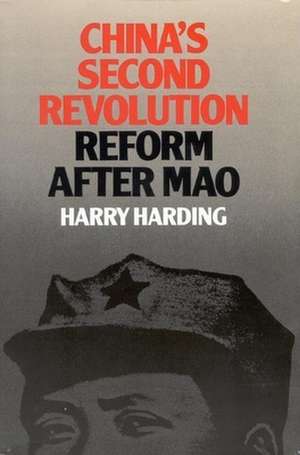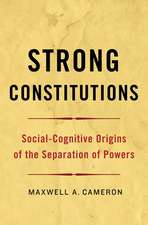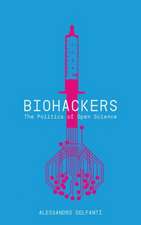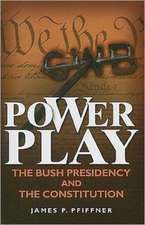China's Second Revolution: Reform after Mao
Autor Harry Hardingen Limba Engleză Paperback – dec 1987
China has, since 1976, been enmeshed in an extraordinary program of renewal and reform. The obvious changes—the T-shirts, blue jeans, makeup and jewelry worn by Chinese youth; the disco music blaring from radios and loudspeakers on Chinese streets; the television antennas mushrooming from both urban apartment complexes and suburban peasant housing; the bustling free markets selling meat, vegetables and clothing in China's major cities—reflect a fundamental shift in the government's policy toward the economy and political life.
Although doubts about the long-term commitment to reform arose after the student protests in December 1986 and the dismissal of Party General Secretary Hu Yaobang in January 1987, the scope of reform has been so broad and the pace of change so rapid, that the post-Mao era fully warrants Den Xiaoping's description of it as the "second revolution" undertaken by the Chinese Communist Party.
Although doubts about the long-term commitment to reform arose after the student protests in December 1986 and the dismissal of Party General Secretary Hu Yaobang in January 1987, the scope of reform has been so broad and the pace of change so rapid, that the post-Mao era fully warrants Den Xiaoping's description of it as the "second revolution" undertaken by the Chinese Communist Party.
Preț: 222.69 lei
Nou
Puncte Express: 334
Preț estimativ în valută:
42.62€ • 46.28$ • 35.80£
42.62€ • 46.28$ • 35.80£
Carte tipărită la comandă
Livrare economică 22 aprilie-06 mai
Preluare comenzi: 021 569.72.76
Specificații
ISBN-13: 9780815734611
ISBN-10: 0815734611
Pagini: 369
Dimensiuni: 152 x 229 x 28 mm
Greutate: 0.55 kg
Editura: Brookings Institution Press
Colecția Brookings Institution Press
ISBN-10: 0815734611
Pagini: 369
Dimensiuni: 152 x 229 x 28 mm
Greutate: 0.55 kg
Editura: Brookings Institution Press
Colecția Brookings Institution Press
Notă biografică
Harry Harding, a senior fellow in the Foreign Policy Studies program at Brookings since 1983, has written several books on China, including Organizing China, the 1986 recipient of the Masayoshi Ohira Memorial Prize. He is coeditor with B
Descriere
China has, since 1976, been enmeshed in an extraordinary program of renewal and reform. The obvious changes—the T-shirts, blue jeans, makeup and jewelry worn by Chinese youth; the disco music blaring from radios and loudspeakers on Chinese streets; the television antennas mushrooming from both urban apartment complexes and suburban peasant housing; the bustling free markets selling meat, vegetables and clothing in China's major cities—reflect a fundamental shift in the government's policy toward the economy and political life.
Although doubts about the long-term commitment to reform arose after the student protests in December 1986 and the dismissal of Party General Secretary Hu Yaobang in January 1987, the scope of reform has been so broad and the pace of change so rapid, that the post-Mao era fully warrants Den Xiaoping's description of it as the "second revolution" undertaken by the Chinese Communist Party.
Although doubts about the long-term commitment to reform arose after the student protests in December 1986 and the dismissal of Party General Secretary Hu Yaobang in January 1987, the scope of reform has been so broad and the pace of change so rapid, that the post-Mao era fully warrants Den Xiaoping's description of it as the "second revolution" undertaken by the Chinese Communist Party.




